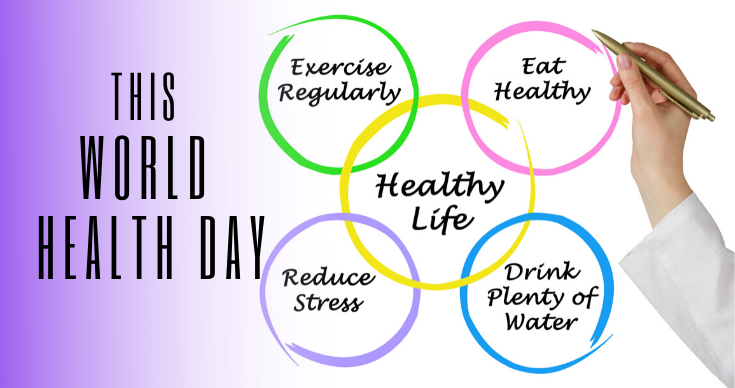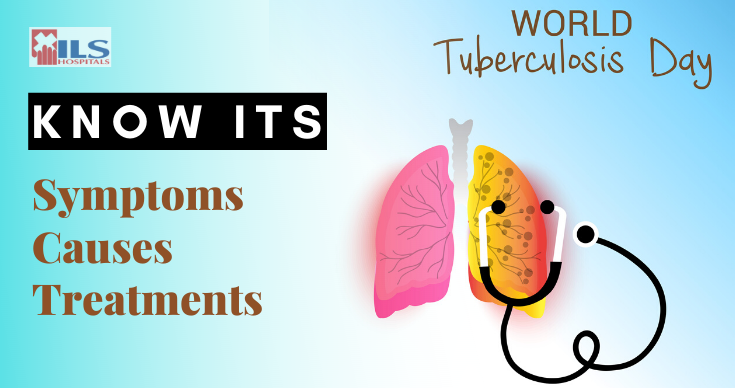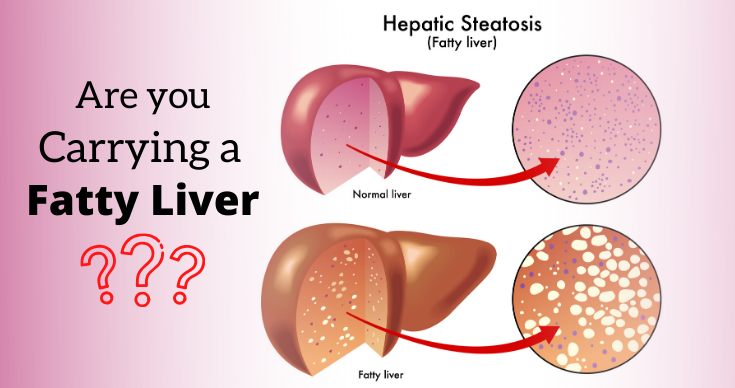On This World Health Day, Follow These Simple Tips To Stay Healthy
Health is indeed wealth. A person who takes good care of his or her health is always happy and healthy. On World Health Day, ILS Hospitals, the best hospital in Agartala and Kolkata will give you some simple and useful health tips so that you are always in fine fettle.
Let’s take a look at some useful health tips.
- Eat healthy food: How can good health start without eating nutritious food? You are what you eat so feed your body with nothing but healthy food. Every individual’s daily requirements are different as per their lifestyle and body. So consider visiting a dietitian to get your customised diet chart and say yes to good health.
- Keep your body perfectly hydrated: Our body is made up of 60% water. The human body needs water to perform essential bodily functions so being well-hydrated is a strict health-rule that everyone must follow. Since it’s summer season, apart from plain water, you can drink fruit-infused water, refreshing coconut water, fresh fruit juices and even consume fruits with high-water content (watermelon, cucumber, sweet lime, etc).
- Stay active: In our modern lifestyle, staying active has become really difficult. Still, you should try to take some time out of your sedentary lifestyle and devote half an hour for exercise or yoga regularly. Try to do household chores on your own to stay active and fit instead of hiring a domestic helper.
- Maintain good hygiene: Practicing good hygiene ensures that we stay away from deadly and disease-causing bacteria and viruses. Brush, have a proper bowel movement and take a bath daily. Always wear clean clothes and keep your surroundings clean. Wash your hands at all times with a good soap and water. Females should take extra hygiene measures during their monthly menstrual periods.
- Get 8 hours of sleep every night: Your body needs rest to renew itself. Take 8-9 hours of sleep every night to strengthen your immune system.
- Get an annual health check-up: If we do not get ourselves tested, we would never know what’s happening inside our bodies. Get annual health check-ups from an expert medical practitioner.
We hope you follow these basic health tips. If you need any sort of medical diagnosis and treatment, visit ILS Hospitals, one of the best hospital in Kolkata and Agartala.
How To Boost Your Immunity To Fight Against Virus Or Any Infection
A weak immune system makes us susceptible to seasonal flu or infections. If you become sick throughout the year then it’s an indication that you do not have a good immune system.
Since none of us wants to spend our days staying sick, ILS Hospitals, the multispeciality hospitals in Agartala and Kolkata would like to acquaint you with ways through which you can have a strong immune system.
Let’s look at the ways without any delay.
- Consume immune-boosting foods: Eat plenty of fresh fruits, vegetables, poultry, seafood, nuts, etc for a healthy immune system. Include spices, like ginger, garlic, turmeric, cinnamon, black pepper, cloves in your meals to keep yourself away from flu.
- Drink more water: Water flushes out toxins and impurities from your body so keep drinking water every hour to have a healthy immune system.
- Avoid certain food and drinks: Try to avoid the consumption of processed and canned foods, junk foods, sugary foods, caffeinated and alcoholic beverages as all of them harm the immune system.
- Get sufficient sleep: Not getting enough sleep will make you more vulnerable to seasonal colds and infections. Therefore, get enough sleep every night without fail.
- Exercise regularly: Doing moderate exercises regularly prepares your body to actively fight against infections. Reserve 20-30 minutes of the day for your exercise regime to have an excellent immune system.
- Get enough sunlight: Sunlight is an extraordinary source of vitamin D. Studies suggest that people who spent enough time in the sun fell less sick than the ones who never received enough sunglight. Even soaking for 5 to 10 minutes in the sun daily during the summer season is more than enough for your immune system.
- Avoid stress: Stress hampers both our mental and physical health. Chronic stress has a huge impact on your body’s immunity so avoid living in a stressful environment.
- Stop smoking: Smoking affects the body’s ability to fight with diseases and infections by killing healthy cells of the body. Hence, quit smoking, right now.
- Take multi-vitamin supplements if needed: If your regular diet lacks essential vitamins then consider taking multi-vitamins to keep up with the body’s vitamin requirements.
Visit a medical professional and ask him or her for prescriptive multi-vitamin supplements as per your body’s daily needs.
You can visit ILS Hospitals, one of the best hospitals in Kolkata and Agartala to get medical advice.
Tuberculosis: Types, Symptoms, Causes, Diagnosis And Treatment
Tuberculosis is a communicable disease caused by the bacteria, Mycobacterium tuberculosis. The bacteria mostly affect the lungs (Pulmonary Tuberculosis) but can spread to other parts of the body, kidney, spine, brain, liver and so on.
Today, ILS Hospitals one of the best hospital in Kolkata and Agartala will give you detailed information regarding Tuberculosis.
Types
The two main types of Tuberculosis are as follows:
1. Latent Tuberculosis:
It is a non-infectious, symptomless TB infection that can later progress into active TB. If you have latent TB you will require treatment to prevent it from becoming an active one.
2. Active Tuberculosis:
As the name suggests, it is an active and contagious TB infection that causes various symptoms in the patient.
Signs & Symptoms
The signs and symptoms of active TB infection are as follows:
-
Chest pain
-
Shortness of breath
-
Cough that lasts for more than 2 weeks
-
Weakness or Tiredness
-
Loss of appetite or Decreased appetite
-
Fever and Chills
-
Night sweats
-
Rapid weight loss
-
Lymph nodes or Swollen glands (mostly at the sides and base of the neck)
-
Haemoptysis or Coughing up blood.
Causes
Young children and people with weak immune system are at a higher risk of getting infected by Mycobacterium tuberculosis. The causes of Tuberculosis are as follows:
-
Weak immune system
-
Breathing in the air infected by the person with TB infection
-
Chronic diseases, like diabetes and kidney diseases
-
HIV
-
Malnutrition
-
Smoking
Diagnosis
The diagnostic tests involved with Tuberculosis are as mentioned below:
-
TB Blood test
-
TB Skin test, in which the laboratory technician injects a small amount of PPD tuberculin into the lower arm to check for swelling after two to three days
-
Sputum test
-
Chest X-ray, the most reliable diagnostic method
Treatment
The treatment depends on whether you have active or latent TB.
1. Latent TB:
The main goal is to prevent the bacteria from becoming an active one. For that, you’ll be prescribed antibiotics as your TB treatment.
2. Active TB:
Drugs and medications for several months are recommended for treating active TB.
People diagnosed with Tuberculosis should complete their entire medication course to prevent TB bacteria from becoming drug-resistant.
If you are suspecting any of this symptoms, get an accurate diagnosis and complete treatment for Tuberculosis from ILS Hospitals one of the best hospital in Kolkata, Howrah and Agartala.
Do You Have Fatty Liver Disease? Find Out The Answer
The primary function of the liver is to purify the blood, detoxify the system and to store certain vitamins, minerals and glucose. Hepatic steatosis or commonly known as Fatty liver disease (FLD) is the accumulation of more than normal fat in the liver. If this condition is caused by excessive alcohol consumption, then we call it Alcoholic Fatty Liver Disease (AFLD). Fatty liver can lead to serious health conditions, like liver inflammation, cirrhosis and even liver failure. Do not ignore if you have already been diagnosed with FLD and get immediate liver treatment.
Causes of Fatty Liver Disease
- Obesity
- Hypertension
- High cholesterol and fat in the blood
- Overconsumption of alcoholic drinks
- Sudden weight loss
- High blood sugar or diabetes
- Certain liver infections like Hepatitis C
- Poor nutrition
- Genetics.
Symptoms of Fatty Liver Disease
The symptoms of fatty liver are mild during the initial stages, hence can be only discovered through proper diagnosis. If the condition deteriorates, you’ll notice the following symptoms:
- Tiredness or Exhaustion
- Abdominal pain
- Weight loss
- Swollen abdomen
- Nausea
- Poor appetite
- Confusion.
Diagnostic tests for Fatty Liver Disease
A correct diagnosis is required to pinpoint Hepatic Steatosis. Your medical history is extremely important for the doctor to find out the exact cause of FLD, so ensure that you provide accurate previous medical reports and answer all the questions precisely. The medical professional will recommend the diagnostic tests as mentioned below:
- Physical exam, in which the doctor presses on your abdomen to check for any enlargement.
- Liver function tests, which are certain blood tests to determine the health of your liver.
- Diagnostic imaging tests, such as Ultrasound, MRI and CT scan, to find the presence of excessive fat in the liver.
- Liver biopsy, in which a tissue sample of your liver is collected to inspect the liver’s condition and damage.
There’s no specific treatment for Hepatic steatosis but with certain changes in the lifestyle and medical guidance, the damage can be reversed and the condition can be in full control. Let’s look at the lifestyle changes you are most likely to be prescribed by the gastroenterologist.
- Avoid drinking alcohol (in case of Alcoholic Fatty Liver Disease (AFLD).
- Eating a healthy and well-balanced diet.
- Losing weight.
- Getting regular check-ups and treatment from the concerned doctor.
You can always visit ILS Hospitals, one of the best hospitals in Kolkata and Agartala for any kind of medical help.
How To Add Enough Vitamin K In Your Diet
Do you know what Vitamin K is? Like all other vitamins, Vitamin K is another vitamin vital for the human body. So, what makes Vitamin K essential for our bodies?
Vitamin K is responsible for the clotting of blood or coagulation. Coagulation is a vital process that helps prevent excessive bleeding after a cut or injury. The said vitamin also helps in bone metabolism and calcification. Vitamin K deficiency is a serious condition and can lead to many health issues including:
– Decreased bone strength
– Osteoporosis
– Tooth decay
– Coronary Heart Disease
– Certain types of cancer.
Do you know the symptoms of Vitamin K deficiency? They are mentioned as follows:
-
Heavy menstrual bleeding
-
Easy bruising
-
Excessive bleeding during cuts, injuries, injection or surgical sites
-
Presence of blood in the urine or stools
-
Bleeding in the gastrointestinal (GI) tract.
Today, ILS Hospitals, one of the best hospitals in Kolkata, would like to give you a list of food items that are rich in Vitamin K so that your body never lacks in this essential vitamin. Before we proceed further, let’s make you know that there are mainly two types of vitamin K – K1 and K2. Vitamin K1 is derived from plant sources whereas we acquire vitamin K2 from animal products.
Make these Vitamin K-rich foods a part of your daily diet!
Soybeans
Soybeans, the only plant-based food that contain both vitamin K1 and K2, a relief for vegetarians who cannot get their vitamin K2 supply from meat sources. Apart from the mentioned fact, soybeans and soya chunks are an excellent protein provider for non-meat eaters. You can also consider cooking your meals in soybean oil as the oil contains not only vitamin K but also other pivotal nutrients, like polyunsaturated fatty acids, omega-3 fatty acids etc.
Leafy Greens
Green leafy vegetables are another plant-source for vitamin K. If you want to have sufficient vitamin K in your diet, eat lots of spinach, mustard greens, broccoli, lettuce, cabbage, beet greens and so on.
Eggs
The yolk of an egg has more vitamin K than the white portion. It is always advised to consume eggs for receiving adequate nourishment. You may eat boiled eggs daily for a healthy body.
Pumpkin
Another vegetable that contains vitamin K is pumpkin. One cup of cooked pumpkin has almost 1.96 mcg vitamin K1. So, do include pumpkins in your diet.
Other good sources of vitamin K are chicken, pine nuts, blueberries, dried basil, sage and thyme etc.
To get your customized diet-chart, visit ILS Hospitals in Kolkata and Agartala.
Important Aspect of Lower G.I. (Colorectal) Diseases And Its Treatments
The digestive tract or the Gastrointestinal (GI) tract comprises of several organs that help with the intake of food, the absorption of nutrients from it and remove the waste from the body.
 The human gut comprises of upper part and a lower part. The lower part consists of most of the small intestine, all of the large intestine, rectum and anus. There can be a number of diseases affecting this lower part, both in innocuous way and in overt way. The trivial symptoms like weakness, weight loss, occasional bleeding with stool are many times ignored resulting in delayed diagnosis and treatment. There may or may not be familial or inherited trait toward developing bowel cancer. Many of these, if diagnosed and treated at an early stage, can be completely cured.
The human gut comprises of upper part and a lower part. The lower part consists of most of the small intestine, all of the large intestine, rectum and anus. There can be a number of diseases affecting this lower part, both in innocuous way and in overt way. The trivial symptoms like weakness, weight loss, occasional bleeding with stool are many times ignored resulting in delayed diagnosis and treatment. There may or may not be familial or inherited trait toward developing bowel cancer. Many of these, if diagnosed and treated at an early stage, can be completely cured.
Following are the few GI diseases –
- Colorectal cancer and benign pathologies
 These cancers can be very silent to start with and may not be detected without careful attention on part of the patients and the doctors together. To make the matter worse, they can spread from one place to another rather quickly. There lies the importance of early screening and thorough check up. Generaly early diagnosis and intervention can provide complete cure from these cancers and a normal life.
These cancers can be very silent to start with and may not be detected without careful attention on part of the patients and the doctors together. To make the matter worse, they can spread from one place to another rather quickly. There lies the importance of early screening and thorough check up. Generaly early diagnosis and intervention can provide complete cure from these cancers and a normal life.
- Benign anorectal pathologies
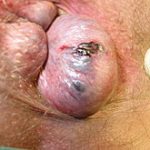 Anal fissure, fistula or haemorrhoids (piles) can have severe implication on quality of life. They may be early signs of more sinister pathologies like cancer as well. Proper vigilance and timely treatment can cure most of them and ensure return to a healthy normal life.
Anal fissure, fistula or haemorrhoids (piles) can have severe implication on quality of life. They may be early signs of more sinister pathologies like cancer as well. Proper vigilance and timely treatment can cure most of them and ensure return to a healthy normal life.
- Inflammatory bowel disease, e.g. Crohn’s disease, ulcerative colitis
 This can be a debilitating condition affecting quality of life. It may affect other systems of the body and may even lead to cancer eventually. Combination of medicine and surgery is the only key to treat this problem.
This can be a debilitating condition affecting quality of life. It may affect other systems of the body and may even lead to cancer eventually. Combination of medicine and surgery is the only key to treat this problem.
- Pre-malignant bowel pathologies like polyps or polyposis syndrome
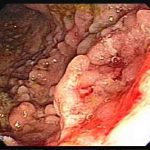 While most of the polyps are benign, yet some of them may turn out to be malignant and it is difficult to know which one will. That makes regular check up more important to allow early detection and intervention for those cancerous polyps leading to complete cure.
While most of the polyps are benign, yet some of them may turn out to be malignant and it is difficult to know which one will. That makes regular check up more important to allow early detection and intervention for those cancerous polyps leading to complete cure.
- Small intestinal pathologies like GIST (Gastrointestinal Stromal Tumour)
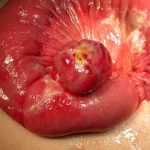 These tumours can produce non-specific symptoms or bowel obstruction. They are amenable to combined medical and surgical management which can ensure good result.
These tumours can produce non-specific symptoms or bowel obstruction. They are amenable to combined medical and surgical management which can ensure good result.
- Stoma care including management of stoma-related hernias
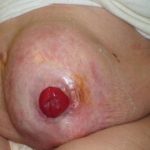 Many a times people have to live with a stoma after operation. While most of these people live a perfectly normal life, sometimes these can be complicated with hernia. Timely repair can restore body image and avoid further complications like obstruction, necrosis.
Many a times people have to live with a stoma after operation. While most of these people live a perfectly normal life, sometimes these can be complicated with hernia. Timely repair can restore body image and avoid further complications like obstruction, necrosis.
The Lower G.I. division of ILS Hospitals comprises of a group of highly trained doctors and paramedical personnel. The medical group consists of surgeons, gastroenterologists, oncologists, radiologists and pathologists. The paramedical group has the specialist nurse, stoma care provider and nutritionists. The department has state of the art operating theatre, endoscopy suites and equipment for most modern modes of colorectal and anorectal bowel problems.
Most of the operations are done here by laparoscopic or key-hole surgery, and also by SILS (single incision laparoscopic surgery) or TEMS (Trans-anal Endoscopic Microsurgery). This has been the trend over the last decade which gets people back to their normal life significantly quicker than the conventional surgery.
So, in case you are suffering from any colorectal condition and are looking for some extensive treatment then come at ILS Hospitals now in order to get the best, advanced treatment under the guidance of our eminent doctors.
 Dr Atindriya Biswas, a renowned laparoscopic colorectal surgeon lends his hands to support and realize this vision to establish and run colorectal service at ILS Hospitals. Dr. Biswas has been extensively trained in India and UK. He has been a surgical consultant in UK centers and some of the apex Indian institutes like Apollo Gleneagles Hospital and Tata Medical Center. He performs most of the procedures by laparoscopy or endoscopy.
Dr Atindriya Biswas, a renowned laparoscopic colorectal surgeon lends his hands to support and realize this vision to establish and run colorectal service at ILS Hospitals. Dr. Biswas has been extensively trained in India and UK. He has been a surgical consultant in UK centers and some of the apex Indian institutes like Apollo Gleneagles Hospital and Tata Medical Center. He performs most of the procedures by laparoscopy or endoscopy.
Call: ILS Hospitals Salt Lake: 033-40206500 | Dumdum: 033-40315000
ILS Hospitals Has Fully Equipped NICU for Every Critically Ill New Born
A nation’s average performance and its position in the global platform depends on several factors. These factors range from education level, per capita income, gross domestic product, health standards and many more.
However, despite the preventive and corrective measure of the government towards the health and well-being, we all fall sick at some point or the other during the course of our lives. Healthcare industry plays an important role in the same. The ILS Hospitals is one of such healthcare partners who ensure that the citizen of India stay in perfect health so that they can contribute towards the overall productivity of the nation.

Let’s understand the importance of it through a case study of its high-end maternity hospital and NICU.
Mrs. Sangita Mitra, a school teacher of age 32, was expecting twins. She was getting her check-up and medication under an obstetrics close to her residence. He advised her diet and medication and also estimated the due date at 36th week.
Things went smoothly for the first and second trimester. However, during the mid of 29th week, she suddenly felt a sharp pain and contraction. Her family immediately consulted her doctor. He expected it might be a case of a premature delivery. But as he had no access to advanced maternal care and handling premature babies, he recommended them to ILS Hospitals.
When she consulted and scheduled a check up to maternity ward of ILS Hospitals, well-qualified obstetrics admitted her immediately as she was experiencing labor. One of the twins, the baby boy, despite being born prematurely was healthy, but the other baby had certain difficulties. Without wasting precious moments, the doctors admitted the baby to the NICU.

The baby girl was suffering from respiratory trouble along with instability of heart rate. The doctors were present round the clock to keep a track of her vitals and to provide medical care. After 6 weeks, the baby girl was fit enough to be discharged from the NICU. Due to the timely intervention of medical treatment and care, she was saved from long-term complications.
The NICU of ILS Hospitals is highly capable of handling crisis that could threaten the survivability and complications (both long term and short terms) that a premature baby or critically ill baby may face. Round the year, ILS Hospital’s NICU saves lives of numerous babies.
The Major Types Of Cosmetic Surgery In The Twentieth Century
The history of medical surgery dates back as early as 500 BC, though the exact timeline is a matter of debate. So, several people believe cosmetic surgery to be extremely recent.
However, it is very far from the actual fact. Multiple records prove that the domain of plastic and cosmetic surgery has existed in the world since a long time.
However, with the time, it has improved a lot. Presently, in India, it is one of the most frequent elective surgical procedures and cosmetic surgery is solving several aesthetic issues with the surgical approach.

Here we present the list of the most prevalent plastic and cosmetic surgery procedures in Kolkata-
- Rhinoplasty- Most commonly known as the nose job. It changes the appearance of the nose.
- Rhytidectomy- It is a Facelift procedure that tightens the jowls and neck.
- Facial Implants- It tightens the facial features and makes the cheek or chin look more prominent.
- Blepharoplasty- It is the procedure to tightening the eyelid.
- Breast Reconstruction- Rebuilds the breast after diseases like cancer
- Changing Breast size and appearance– Enhances or reducing the size of the breast
- Mastopexy- Tightens the skin of the breast to improve the contour
- Gynecomastia- Resection reduces the size of large breasts in men and improves chest contour.
- Liposuction- It removes extra fat from the fat zones such as hips, thighs, buttocks, belly etc
- Abdominoplasty- It is more commonly known as tummy tuck. It removes extra fat and thereafter tightens the skin.
- Mini-Abdominoplasty- A similar surgery like the previous one. It removes the lower abdominal pouching
- Skin resurfacing- Smoothes the skin with the help of laser, or other similar techniques
- Hair transplantation- Treats pattern baldness of both male and female.
- Arm lift- It tightens the skin layer of the upper arm and fixes any lose skin bags
- Otoplasty- Ear pin back. It brings the ears closer to the head
- Scar revision surgery- Improves the appearance of scars
A plastic or cosmetic surgery is the surgical approach that helps to alter the contour and appearance of the body and improvise the physical attributes. As a result, the self-esteem and mental image changes as well and overall, it helps the individual to lead a more confident life ahead.
A Brief Introduction Of Dengue
Independent of the fact whether you even had it or not, everyone is aware of this particular disease. it is an extreme condition of fever that infects about 390 million patients every year from all around the world. It is prevalent in certain geographical location as compared to others. The main reason for the same is the Aedes mosquito as they are the vector of the deadly dengue virus, which in turn is the pathogen of dengue fever.
These are becoming very common during monsoon in India as well, and several patients with suspected dengue are made to take test, post confirmation is admitted for the same.
Symptoms of Dengue
Symptoms of Dengue fever often onsets after 4-6 day of exposure to the infection. These are mostly-
- Fatigue
- Severe joint and muscle pain
- Sudden, high fever
- Vomiting
- Nose or gum bleeding, or easy bruising
- Pain behind the eyes
- Nausea
- Severe headaches
- Skin rash, that onsets two to five days after fever
These symptoms are often mistaken for signs of flu and thus are neglected.

Complications of Dengue
Young children and first timer to this particular virus become more severe to the symptoms and are at risk of developing complications such as hemorrhage fever, bursting of a blood vessel and lymph etc. In rare condition, it can progress to a potentially dreadful condition which is called the dengue shock syndrome that can lead to mass bleeding, shock or even death. It is more common among young children, people with weak immune system and people with subsequent dengue infection.

Diagnosis of Dengue Fever
Dengue infection can be diagnosed with a blood test. However, often this stage comes much later due to the negligence of people or mistaking as some other common illness.

Treatment for Dengue
There is no guaranteed medicine that can cure dengue fever completely. Pain killers are mostly prescribed for the same along with guideline for rest and recovery. This includes drinking plenty of fluid, adequate rest, avoiding any un-prescribed medicine as it can induce bleeding, and affect the biological blood clot mechanism. And it is extremely important to report any change to the hospitals of Kolkata for immediate treatment.

Prevention of Dengue
There is no particular immunization for preventing the dengue fever as of now. The only way to do so is by preventing the mosquitoes biting. This includes keeping the surrounding clean and prohibiting breeding and blooming of mosquito around by all means possible. In event of any doubtful symptoms, getting in touch with a hospital is highly recommended.

A Brief Introduction Of Endoscopy
Endoscopy is one of the most employed diagnostic probes that are used in the domain of medical science in the leading hospitals of India, which also includes Kolkata. The term endoscopy literally means to ‘look inside’ and for medical purpose, it rightfully enable the doctor to look inside the body and figure out the probable cause of any discomfort or as a treatment approach for some medical conditions. The technique is very similar to a laparoscopic surgery and is done by inserting a particular kind of instrument into the cavity and hollowed organs.
There are multiple types of the same depending upon the site on the body. Also, the patient may or may not be given a dose of anesthesia, depending upon the procedure. Endoscopy in broader term refers to the procedure, in usage, it is synonymously used for the procedures carried out in the upper gastrointestinal tract, primarily inserted through the nose or mouth.

An endoscopy is a highly efficient procedure to determine the underlying cause of any illness or discomfort without opening it up by making a large incision. Several times, it is also used to extract a few tissues for the site for the purpose of biopsy and other screenings. Though it is a bit rare and executed only when a possible case of cancer or malignancy is suspected. It also proves to be an extremely beneficial tool to determine the effect of any medication and new treatment procedure.
As already mentioned, for upper gastroenterology, the endoscopic probe is mostly inserted through the mouth, nose or rarely through a small cut made on the epidermal layer of the skin. It is stitched back after the completion of the procedure. The endoscopic procedure is almost similar to that of a laparoscopic surgery.

To aid the visuals, the endoscope probe also comprises of a cold light source and camera, which projects the real time image of the internal organ. The internal images can either be decoded and evaluated by the pathologist directly or can be screened and saved, for the respective doctor to analyze it later.
The endoscopy is an extremely popular diagnostic tool in the medical world. It is usually sufficient for determining the underlying cause. After it reveals the primary results, it might lead to either oral medication, drug therapy or surgical approach, depending upon the individual case and type of illness.











